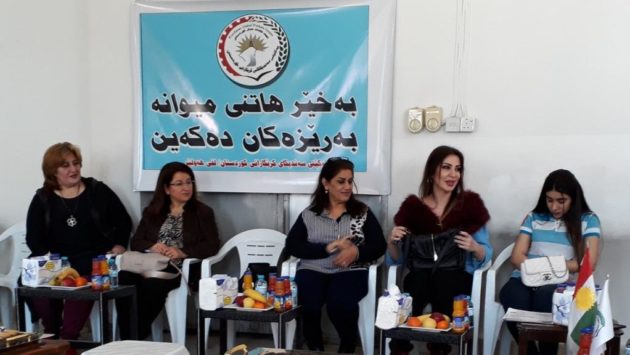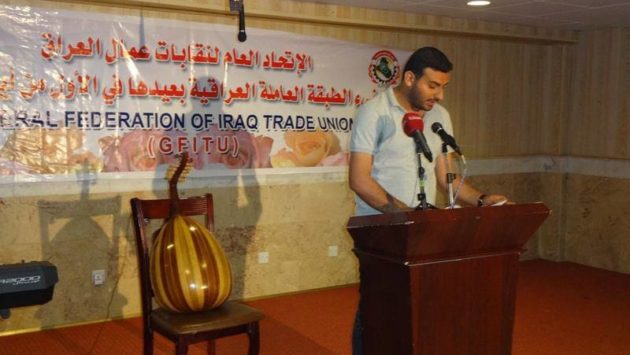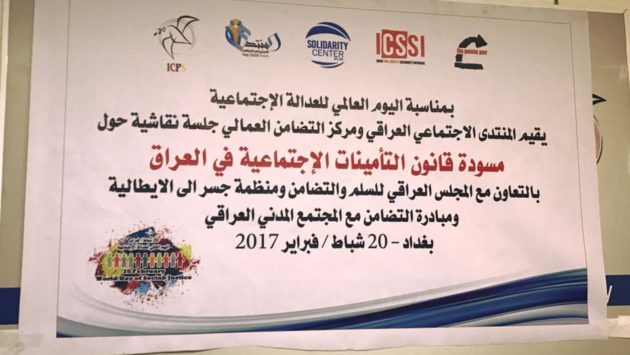MPs Declare Recent Government Decisions “Unfair” and Against the Interests of the Public Sector, as Companies within the Industrial Sector Assert that 250 000 Workers may Risk Pay Cuts!
Al-Mada Press/ Baghdad
On Thursday, company representatives from the Ministry of Industry and Minerals demanded that the parliament put pressure on the government to pay their salaries, which have been stalled for three months and to bring these ‘at risk’ companies back to a system of central funding, that is, funding by the Iraqi government. They pointed out that due to the national budget deficit, more than 250 000 workers may not receive their salaries, and stressed further that the Iraqi government is working to lay off some very talented people. A number of MPs called their decision “unfair” because it undermines the rights of the public sector.
In an interview with Al-Mada Press, Member of the Executive Office of the General Federation of Iraqi Workers, Adnan Al-Saffar stated: “Company representatives within the Ministry of Industry held a conference today at the Iraqi Council of Peace and Solidarity in the central of Baghdad — attended by members of the parliament, Joseph Saliwah and Shorooq Al-Abaiji — to discuss the demands of employees of companies affiliated to the Ministry of Industry and Minerals regarding the payment of their salaries which have been stalled. Also discussed was the proposal to return these businesses to a system of central funding.
Al-Saffar said that “the representatives of the companies demanded that the House of Representatives press the government to pay the salaries they are due, and to reform companies in such a way that they contribute to the economic advancement of the country as a whole. They want to urge the government to overturn the decision that allows these companies to be self-financing, and to include them within the policy of central funding. They also endorsed the activation of important (yet until now, dormant) laws such as the customs tariff, the law that protects local products and the consumer protection act”.
Al-Saffar pointed out that “the number of workers in these companies exceeds 250 000, most of whom have not been paid for three months, while others have been told that their salaries may be frozen starting next month after stopping loans and advances once offered to employees by the government”.
Moreover, in an interview with Al-Mada Press, an employee from the Nasir Company, Modhar Abbas, said: ”Our primary demand now is payment of our stalled salaries of the last three months, especially since the workers in these companies are from the working classes.” He noted further that “the government is trying to get rid of the staff of these companies even though they are highly skilled and efficient workers with offers of work from foreign and Arab companies, which they have until now refused”.
Member of Parliament for Alwarkaa Democratic bloc, Joseph Saliwah, stated: “We have listened to the demands of these workers and we will submit it to the Council of Ministers and the Presidency of the Parliament to find solutions”.
He claimed that the “delay in activating those laws that concern the industrial sector is one reason for the failure in administration within the sessions of the Council of Representatives — too often, they debate laws that are not of great importance and ignore the vital legislation that directly impacts workers in Iraq”.
In turn, the MP for the Civic Democratic Alliance, Shorooq Al-Abaiji, said that “all decisions taken against public sector companies have been hasty and unfair, and have directly impacted the well-being of their employees”.
She demanded that the government “reconsider these decisions quickly, and issue alternative decisions which take into account the interests of these workers”, stressing “the importance of the adoption of a national policy to promote an economy which serves the community”.
The past few days have witnessed demonstrations held by the employees of companies within the Ministry of Industry and Minerals in a number of provinces, demanding that they transform from being self-financing institutions to central funding ones, and to pay their overdue salaries. The most recent demonstration in Baghdad was held by dozens of employees from the leather company of MoIM on 1 January 2014.





